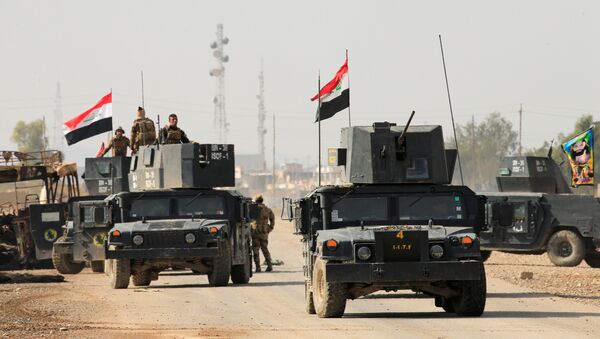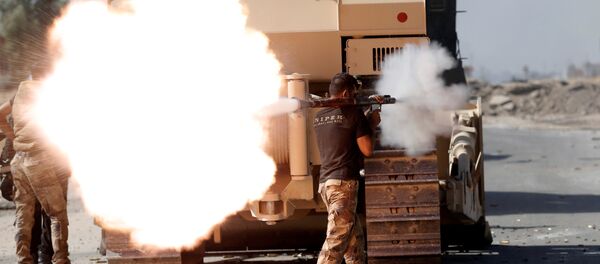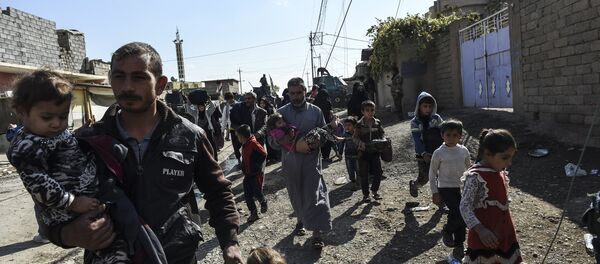Washington is "deliberately forcing [Daesh] to flee to Syria since … the US has made every effort to make the militants destroy Bashar al-Assad and his regime," defense analyst Victor Litovkin told RT. "This is why Carter's remarks are a message to terrorists indicating where … Americans will let them go."
The offensive to liberate Mosul, Daesh's stronghold in Iraq, was launched on October 16, with local and US defense officials saying that it is ostensibly going according to plan, if not ahead of schedule. Iraqi security forces, the US-led coalition, Kurdish fighters and local allies are said to have liberated at least 120 villages and towns close to the city and have entered Mosul itself earlier this week.
"Those trying to retake [Mosul] are interested in their adversary leaving it. Then they could secure a victory more easily and take control of the city with minimal losses," Semen Bagdasarov, director of the Center for Middle Eastern and Central Asian Studies, told RT.
Sceptics have pointed out that Washington wanted the operation to proceed faster, so that Mosul's liberation took place prior to the upcoming US presidential election in a bid to convince voters that the Democrats and Hillary Clinton could reach foreign policy objectives. However, the operation has proceeded at a slower pace and could take much longer to succeed than anticipated.
The analyst further said that should anti-Daesh forces rush into Mosul, this could lead to "massive civilian casualties," casting hardliners in the US in a bad light in the final days before the presidential election.




